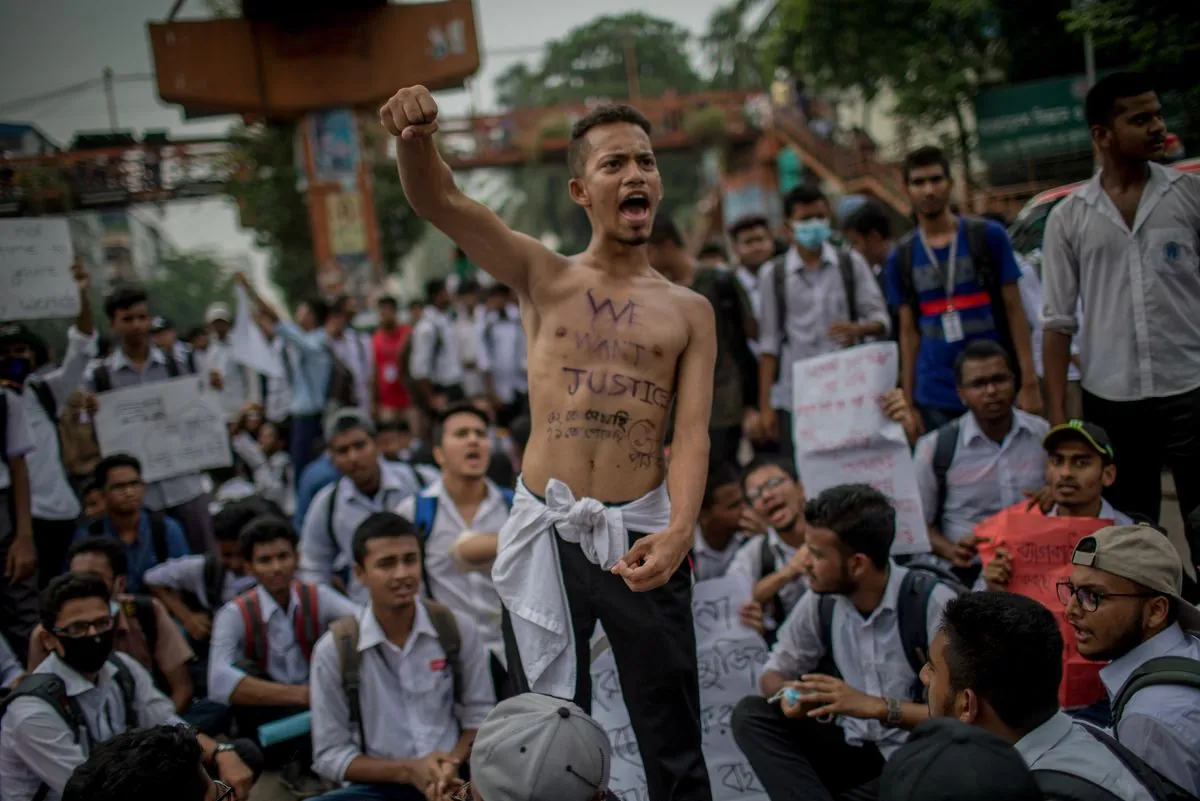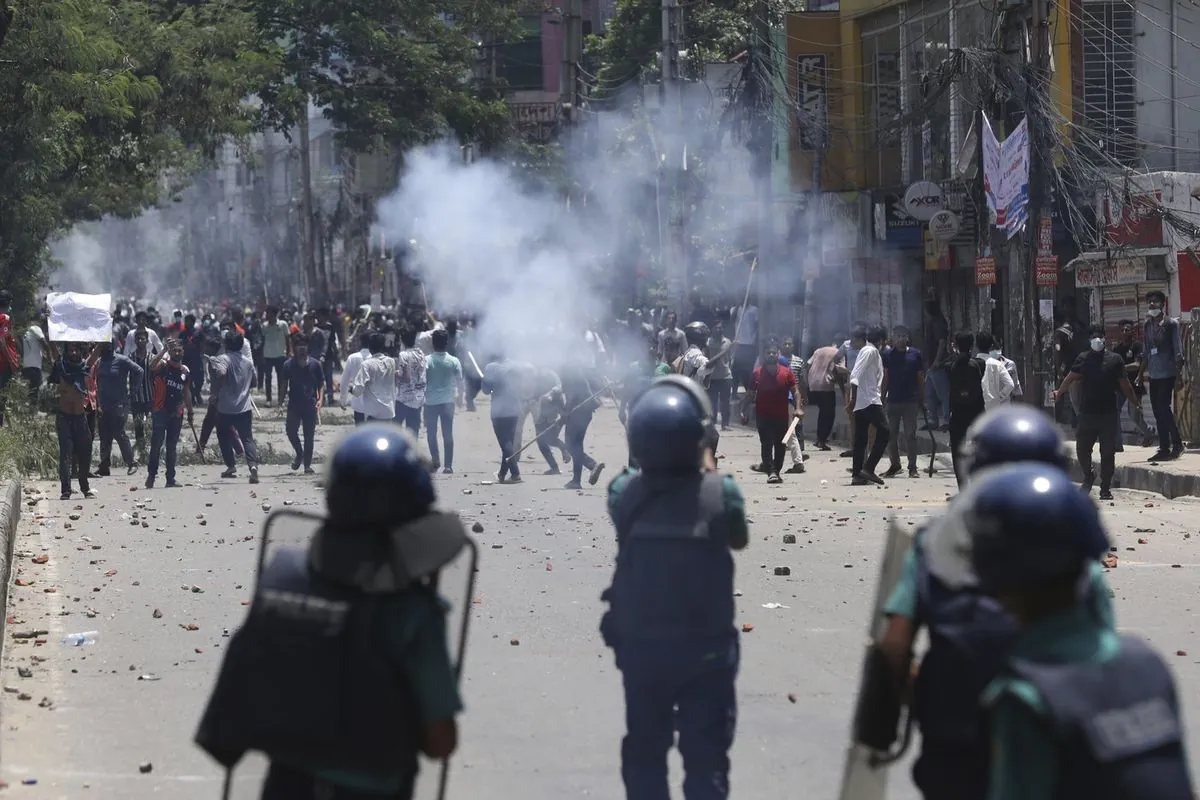Student Protesters in Bangladesh Consider Forming New Political Party
Student-led demonstrations in Bangladesh have ousted Prime Minister Sheikh Hasina. Protesters are now contemplating the formation of a new political party to implement reforms and break the long-standing duopoly in the country's politics.

In a significant turn of events, student-led protests in Bangladesh have resulted in the ousting of Prime Minister Sheikh Hasina, marking a new chapter in the country's political landscape. The demonstrations, which began in June 2024, have now evolved into a movement considering the formation of a new political party to implement reforms and break the long-standing duopoly in Bangladesh's politics.
The protests initially started in response to a law reserving government jobs for certain segments of the population. However, they quickly gained momentum, fueled by widespread discontent over jobless growth, allegations of corruption, and diminishing civil liberties. The government's harsh crackdown on the demonstrators further intensified public anger, leading to the largest bout of violence since Bangladesh's independence war in 1971.

Mahfuj Alam, a 26-year-old law student and protest leader, stated, "People are really tired of the two political parties. They have trust in us." This sentiment reflects the growing desire for change among Bangladesh's youth, who make up a significant portion of the country's 170 million population.
The interim government, led by Nobel Peace laureate Muhammad Yunus, now includes two student leaders in senior positions. Nahid Islam, a 26-year-old protest organizer who holds the telecommunications portfolio in the interim cabinet, emphasized the need for structural reforms to prevent the return of autocratic rule.
"The spirit of the movement was to create a new Bangladesh, one where no fascist or autocrat can return. To ensure that, we need structural reforms, which will definitely take some time."
The student leaders are carefully considering their next steps. Tahmid Chowdhury, a 24-year-old graduate student and protest coordinator, indicated a "high chance" of forming a political party rooted in secularism and free speech. The group plans to consult widely with ordinary voters before finalizing their platform.
However, the interim government faces challenges. Constitutional expert Shahdeen Malik noted, "We are totally in uncharted waters, both legally and politically. The powers of this interim government are not defined because there is no constitutional provision."
The ousted government, led by the Awami League, maintains that it still has a role to play. Sajeeb Wazed, Hasina's son and adviser, stated, "The political parties are not going anywhere. You cannot wipe us out."
The protests escalated dramatically following Hasina's controversial remarks on July 14, 2024, when she referred to the demonstrators as "razakars" - a term associated with collaborators during the 1971 independence war. This comment ignited furious mass protests, drawing in students from both public and private universities.
The army's refusal to enforce a curfew on August 4, 2024, marked a turning point in the movement. A serving officer, speaking anonymously, revealed, "The army chief didn't want more bloodshed. People from all walks of life were joining."
As Bangladesh navigates this period of political transition, the world watches to see how this student-led movement will shape the future of one of South Asia's most populous nations. The potential formation of a new political party could significantly alter the country's political landscape, potentially breaking the decades-long dominance of the two major parties.


































